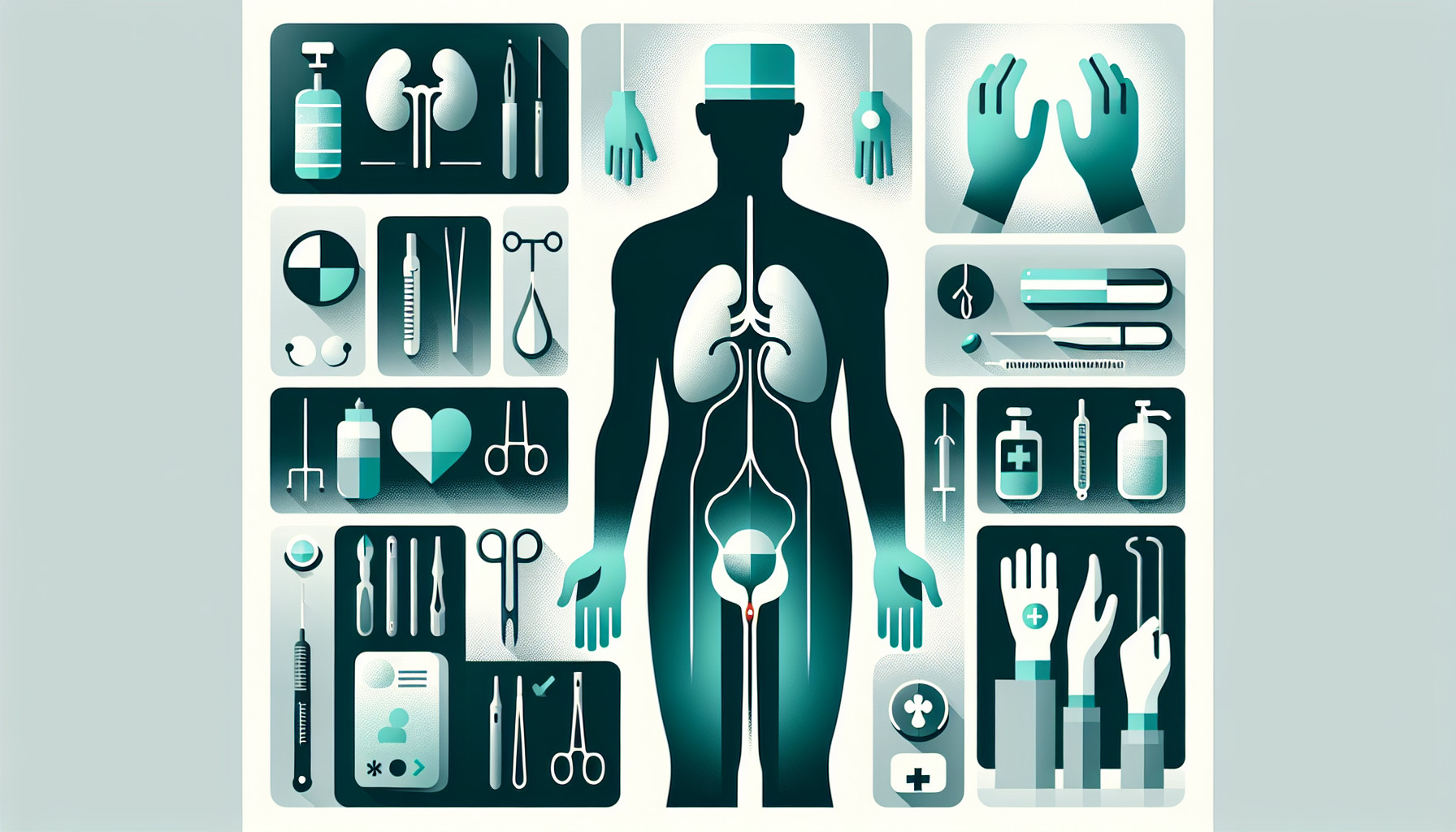Our Summary
This research paper looks at the safety and success of a robotic-assisted kidney surgery using the da Vinci Single-Port (SP) platform. The study reviewed 14 patients who had this surgery in 2018 and 2019. The surgeries were done by two experienced robotic surgeons, using the same steps as a standard robotic kidney surgery.
The results showed that there was no need to convert to traditional or laparoscopic surgery, and no extra assistance was needed. The surgeries took about 202 minutes on average, and the patients spent about 258 minutes in the operating room. The period during which the kidney was deprived of blood supply (warm ischemia time) was on average 20 minutes.
Two patients experienced postoperative bleeding and required further treatment. In 79% of patients, the surgery was successful with no complications, the warm ischemia time was less than 25 minutes, and there was no cancer left in the surgical margins. One patient had a positive margin, meaning some cancer was left behind. The patients stayed in the hospital for about one day and reported moderate pain the day after surgery. One patient needed pain medication a week after being discharged.
At a follow-up five months later, none of the patients showed signs of cancer coming back. The study concludes that this type of surgery is safe and feasible when performed by experienced robotic surgeons.
FAQs
- What is the average time spent by patients in the operating room for robotic-assisted kidney surgery using the da Vinci Single-Port platform?
- What were the postoperative complications reported after the robotic-assisted kidney surgery?
- Based on the study, what are the chances of cancer recurrence in patients who underwent robotic-assisted kidney surgery using the da Vinci Single-Port platform?
Doctor’s Tip
A doctor may tell a patient undergoing nephrectomy that robotic-assisted surgery, such as the da Vinci Single-Port platform, has been shown to be safe and successful in removing the kidney. It is important to follow post-operative care instructions, such as taking pain medication as prescribed and attending follow-up appointments to monitor for any signs of complications or cancer recurrence. It is also important to discuss any concerns or questions with your healthcare provider before and after the surgery.
Suitable For
Patients who are typically recommended for nephrectomy include those with kidney cancer, kidney stones, kidney infections, or other kidney diseases that cannot be treated with less invasive methods. Additionally, patients with severe kidney damage or kidney failure may also be candidates for nephrectomy. It is important to note that the decision to undergo a nephrectomy should be made in consultation with a medical professional, taking into consideration the individual patient’s medical history and overall health.
Timeline
- Before nephrectomy:
- Patient is diagnosed with kidney cancer or other kidney conditions that require removal of the kidney.
- Patient undergoes preoperative tests and evaluations to assess their overall health and to determine if they are a suitable candidate for surgery.
- Patient may meet with a urologist or other specialists to discuss the surgery and its potential risks and benefits.
- Patient may need to make lifestyle changes or take medications to prepare for surgery.
- Patient is admitted to the hospital on the day of surgery and undergoes anesthesia before the surgery begins.
- After nephrectomy:
- Patient wakes up in the recovery room after surgery and is monitored closely for any complications.
- Patient may experience pain, fatigue, and discomfort in the days following surgery.
- Patient may need to stay in the hospital for a day or more to recover and receive pain management medications.
- Patient may be discharged from the hospital and instructed on how to care for their surgical incision and manage their pain at home.
- Patient may need to follow up with their surgeon for postoperative appointments and tests to monitor their recovery and check for any signs of cancer recurrence.
- Patient may gradually return to their normal activities and resume their daily routine as they recover from surgery.
What to Ask Your Doctor
- What are the potential risks and complications associated with nephrectomy surgery?
- How experienced are you in performing robotic-assisted nephrectomy surgeries?
- What is the success rate of robotic-assisted nephrectomy surgeries compared to traditional or laparoscopic surgeries?
- How long is the recovery time after a robotic-assisted nephrectomy surgery?
- Will I need any additional treatment or follow-up care after the surgery?
- What is the likelihood of the cancer coming back after a nephrectomy surgery?
- Will I need any pain medication or assistance with pain management after the surgery?
- How soon can I return to normal activities and work after the surgery?
- Are there any dietary or lifestyle changes I should make after the surgery to support my recovery?
- What are the long-term implications of living with only one kidney after a nephrectomy surgery?
Reference
Authors: Francavilla S, Abern MR, Dobbs RW, Vigneswaran HT, Talamini S, Antonelli A, Simeone C, Crivellaro S. Journal: Minerva Urol Nephrol. 2022 Apr;74(2):216-224. doi: 10.23736/S2724-6051.21.03919-9. Epub 2021 Mar 26. PMID: 33769009
